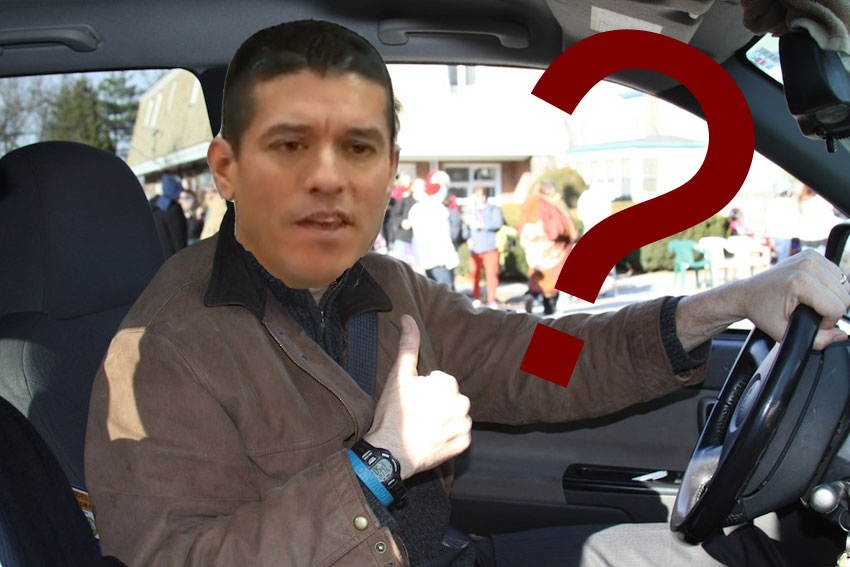Gabriel Gomez Is Not the Next Scott Brown
It was the first question to came to mind when many heard the news that political upstart Gabriel Gomez won the Republican Senate primary: Is he the next Scott Brown? We’re going to venture a guess here: No.
First, a quick debrief on why people might ask this: Gomez will face Rep. Ed Markey in a special election to fill a vacancy, similar to the one that allowed Scott Brown to upset Martha Coakley. Gomez is young and charismatic and he faces a relatively weak Democratic nominee. (In a recent poll, just 39 percent of voters held a favorable view of Markey. At this point in Coakley’s race, the Attorney General had 57 percent favorability. She still managed to lose.) Gomez doesn’t look much like a national Republican. He wrote a fawning letter to Gov. Deval Patrick asking for the interim Senate appointment and pledging his support for President Obama’s agenda. He holds moderate (if occasionally confusing) positions on social issues from abortion to gay marriage.
Still, you’ve got to look at the reasons the candidate doesn’t resemble Brown before you go photoshopping Gomez’s face on a pickup truck. (Oops, we already did that.)
Democrats have their eyes wide open
The fact that we’re even asking each other whether Gomez is the new Brown demands an answer in the negative. Brown’s great success was that state and national Democrats didn’t see him coming in time to rescue Coakley. Democrats very clearly see Gomez coming now. Ever since he looked like he might win his primary, news articles have quoted kvetching Democrats who say Gomez might put up a fight, and they won’t let 2010 happen again. At Markey’s victory party last night, Sen. Elizabeth Warren said, “We will not let our guard down..I don’t kid myself: this is going to be a fight.” A Globe headline this morning reads “Democrats fear reliving 2010 race that elected Brown.” The Herald headline last week was “Gomez victory would send jitters to Dems.” Ironically, those jitters pretty much close the door on Brown’s greatest advantage: a sneak attack. Because Democrats are nervous and mobilized, we’ll probably have a moderately interesting contest. But if Gomez wins, he’s not going to do it as the “next Scott Brown” but as the first Gabriel Gomez.
2013 is not 2010
The 2010 election wasn’t just “special” in that it was a special election. There were a host of factors that aligned to propel Scott Brown to victory. As Stonehill Political Scientist Peter Ubertaccio blogged back in December:
Brown won in a special election in January 2010 having faced a poorly run Democratic campaign in a year of Democratic demoralization, low voter turnout, and tea party uprising. Which one of these factors are going to be present should there be a spring 2013 special election in Massachusetts?
Fast forwarding a few months, it doesn’t look like there’s a grassroots Republican movement taking over the nation. Nor does there appear to be a galvanizing political issue in the national sphere. President Obama’s most prominent issue of late has been background checks for gun purchasers, a far less controversial issue than health care. As National Journal’s Kevin Brennan writes this morning, ” It’s difficult to identify an issue that could emerge in a similar role for Gomez’s campaign between now and the June 25 general election.” Just because two elections are “special” doesn’t mean they are special in the same way.
Gomez lacks Brown’s campaign experience
Brown was uniquely able to take on the political opportunity the Democrats handed him in 2010 for another reason: he was an experienced campaigner. Republican strategist Rob Gray tells National Journal, “Scott Brown had run for office multiple times in very difficult local races, so he had the political skills under his belt to be able to take advantage of the unique opportunity that came to be at the end of that special election.”
Gomez’s central campaign idea is that he’s not a politician. As he knowingly joked in his victory speech Tuesday night, “If you are looking for an experienced slick talking politician, I’m definitely not your guy.” The Boston Herald’s Joe Battenfeld put it another way: “Gomez also has not been a very impressive candidate on the stump, especially in the GOP debates. He needs to learn quickly to be a better campaigner and a better debater.” He’s got just eight weeks to do so.
***
There’s no mystery as to why we’re hearing so much musing on whether Gomez is the next Scott Brown. People want their politics to be exciting. They want a horse race. Scott Brown’s win was one of the most electrifying things to happen in American politics in recent years, so any chance journalists and political junkies get to imagine a comparably exciting race, they’ll take. As political pundit Larry Sabato tweeted last night, “Dozens tell me Gomez is next Scott Brown. By my count since ’10, this makes Gomez [the] 35th next Scott Brown.” Gomez could find some new way to surprise and shock us. It probably just won’t be by repeating Brown’s playbook. After all, it’s worth noting how things turned out for those first 34 Scott Browns.



